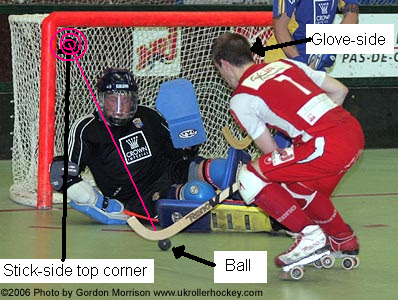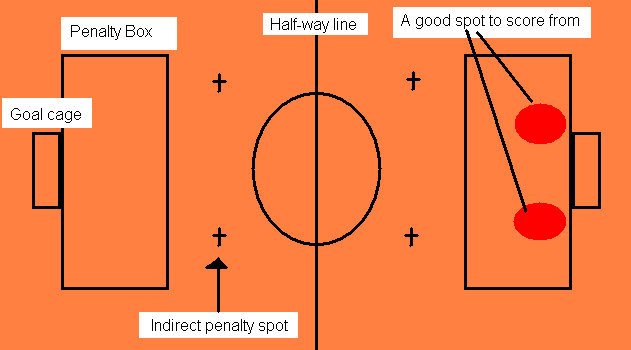Did you know that the term “no holds barred” comes from wrestling? Not the fake stuff. The real ancient art.
I’ve been reading a bunch of articles and discussions online recently surrounding a Christian response to cagefighting. Craig started it in his column at SydneyAnglicans. He suggested we should be coming up with an articulate position on what appears to be a pretty divisive matter of conscience populated by two unbiblical extremes…
For many, their first gut reaction to the sport will define their position. But it may be worth spending some time to work through the issue properly. I predict this sport will become enormously popular in Australia over the next few years, especially amongst young men. If this happens, it will be good if we have done some proper thinking on the subject beforehand.
Now everywhere I turn on the interwebs I’m reading the debate.
Ben commented on it yesterday, the NY Times ran a story about cage fighting churches, Justin Taylor quoted this rebuttal to the kind of Christianity modeled in the times piece and Mark Driscoll has been banging on about UFC for years. Cage fighting is well and truly established there and I haven’t read a middle ground response from the Christian community – you’re either in the Jesus was a cage fighter camp or the sissy pacifist camp… which led to this quote.
It discourages and mocks godly men who aren’t macho. There is an undercurrent of disdain in all of this. Proponents of this testosterone Christianity can’t help but take shots at guys who wear pastels and drink cappuccino. You might not like guys with manicures, but there’s absolutely nothing morally wrong with it. A reserved, quiet, well-groomed man can be a good Christian. Believe it or not.
I think the debate is pretty silly and out of all the Christian interactions I’ve read or experienced they descend in to ad hominem non-arguments the quickest (though arguments about Genesis 1 and alcohol consumption are up there).
From the NY Times:
The goal, these pastors say, is to inject some machismo into their ministries — and into the image of Jesus — in the hope of making Christianity more appealing. “Compassion and love — we agree with all that stuff, too,” said Brandon Beals, 37, the lead pastor at Canyon Creek Church outside of Seattle. “But what led me to find Christ was that Jesus was a fighter.”
Some of the arguments for cage fighting are just stupid. Jesus was not a cage fighter. No matter how hard some of the Americans want to believe that to be the case. Being a cage fighter does not make one a man, it does not even make one more manly. If this is just a correction to the feminisation of the church then it’s an odd and ill directed attempt to get more men along – but Craig was right. This is a discussion we need to have. Cage fighting is huge.
While I think some of the extreme positions on the pro fighting side are silly I wonder how much of the bellicose criticism coming from the anti-violence side of the debate is just ill-conceived grandstanding.
Gentleness is a good thing. Sure. And Christians are called on to turn the other cheek. But to suggest that a sporting endeavour where two combatants engage in a competition with agreed upon rules and parameters is somehow definitively ruled out in the Bible just seems odd to me. It’s a conscience issue – surely.
I’m not out to change anybody’s opinion on this matter – if you think violent sports are wrong then don’t watch or take part in them. I watch boxing. I enjoy WWE (which isn’t real). I haven’t watched much UFC – but I don’t have a problem with it – really. It’s just not my preference. I’d rather watch a bunch of other sports. I love the violence and physicality of league. Anybody who says they don’t watch league for the collisions is just a touch football fan in disguise. Does this make me a bad person? Anybody who thinks that league players don’t go out of their way to “hurt” others has never seen a forward make a tackle or a hit up (and they certainly haven’t spoken to any successful league players).
Why are we pain averse? I don’t understand why causing other people pain it’s clearly expected and mitigated by rules is possibly wrong? Is it less good than not causing them pain? I don’t know… but lines drawn in this debate seem completely arbitrary. League is ok (or perhaps Union), UFC is not – where does the line fall? How do you decide? As an aside – in the comments on Craig’s post Kutz suggested we need a doctrine of sport. I like that idea.
The clincher (for me) came up in the Sydney Anglicans discussion. I love the stories of violence in the Old Testament – I don’t glory in them (too much) – but I see them as pictures of justice and of the struggle between good and evil. The Bible contains more violence from righteous men than UFC will ever produce.
If it comes down to a question of “purpose” and violence not being suitable for entertainment then I wonder how many of the brothers coming out against UFC enjoy violent movies or TV shows? How can one affirm the quality of the Godfather while decrying a sport?
If it’s a problem with the unholiness of the entertainment then what about every TV show that contains sexual immorality… if it’s that the sin is real and not imagined then what about game shows where contestants are motivated by greed?
I don’t see why the objections to this passion or interest are so heated and so different to the reactions to anything else – except perhaps for a declaration that one considers the earth to be billions, not thousands, of years old or the suggestion that beer is one of God’s best ideas.













